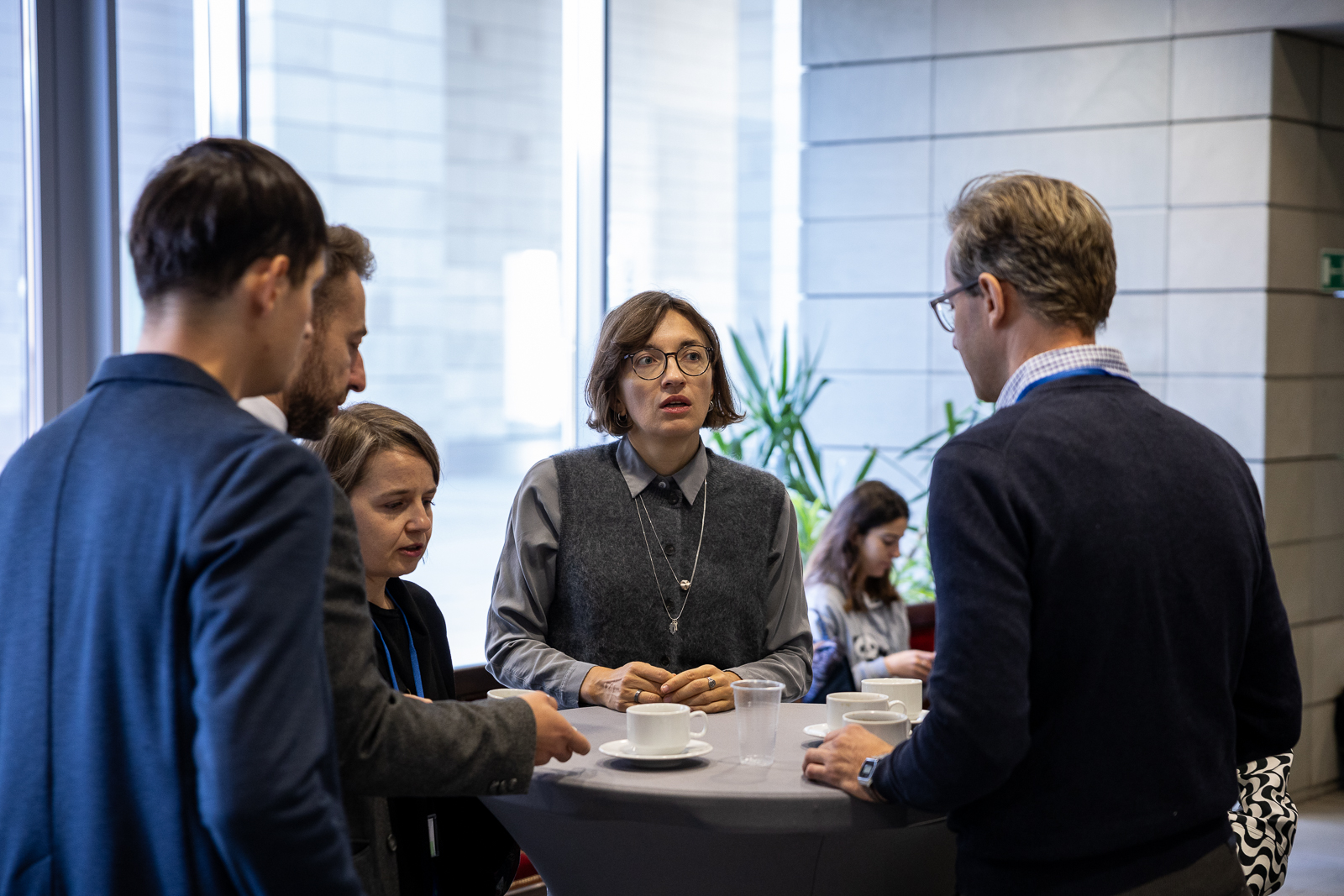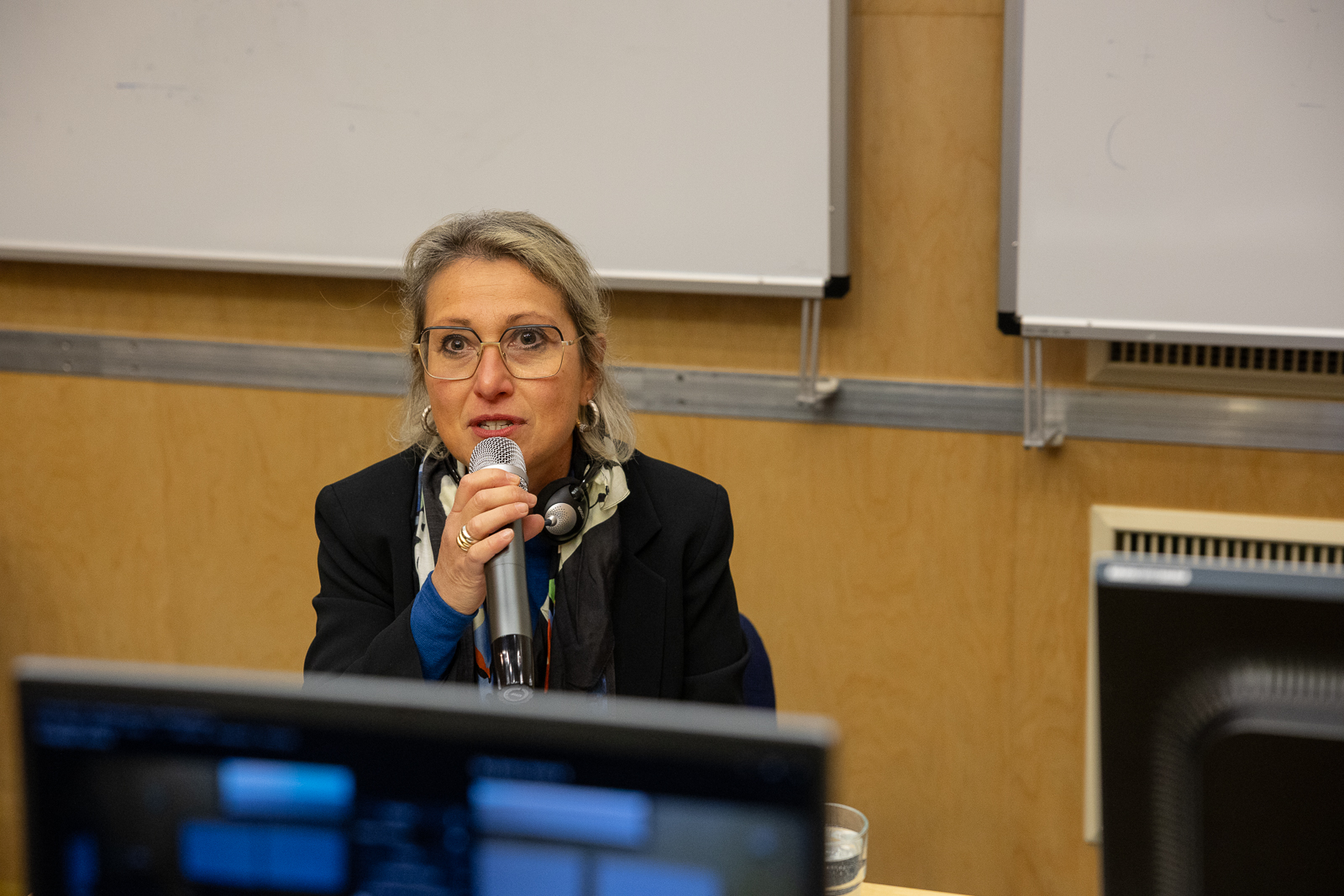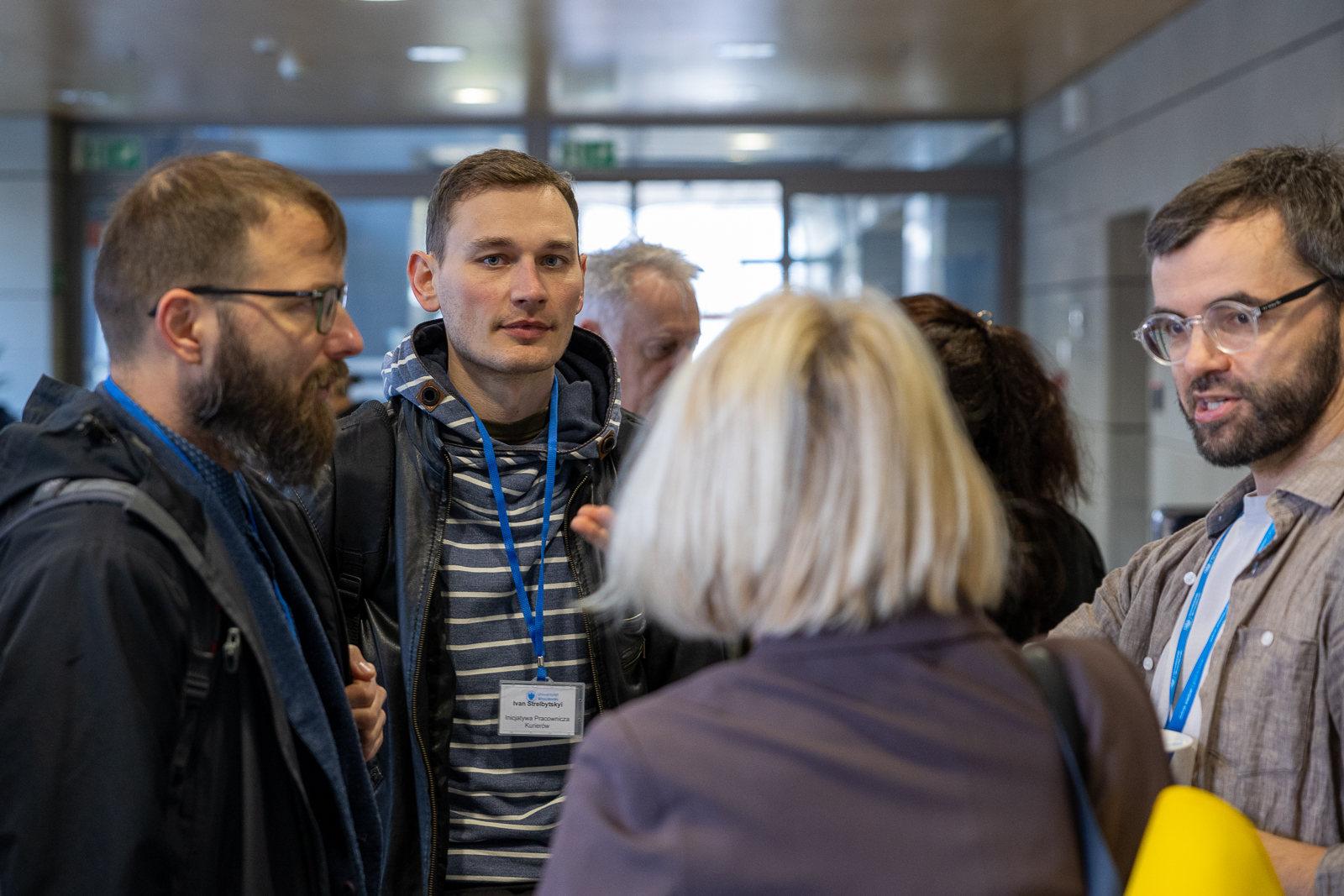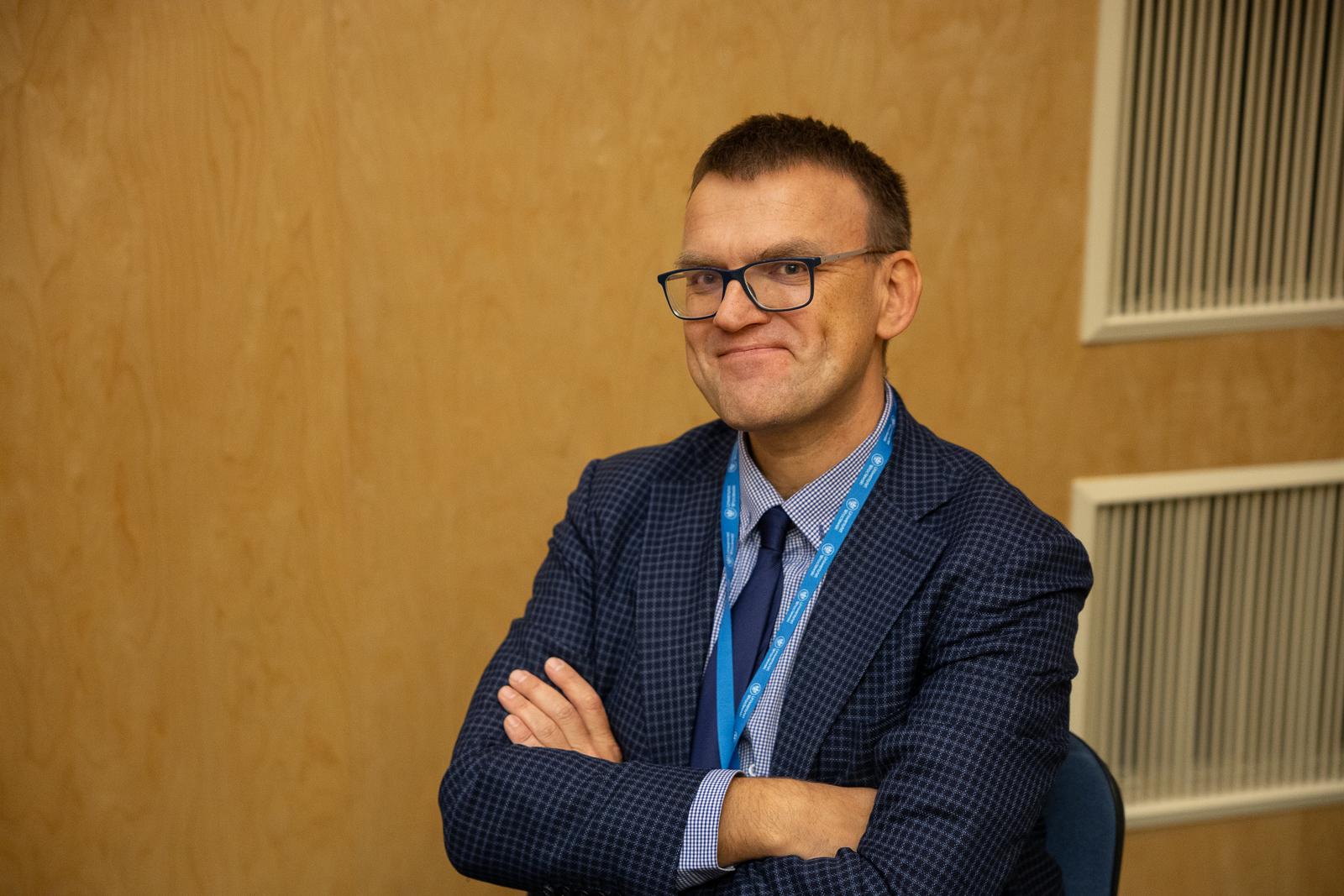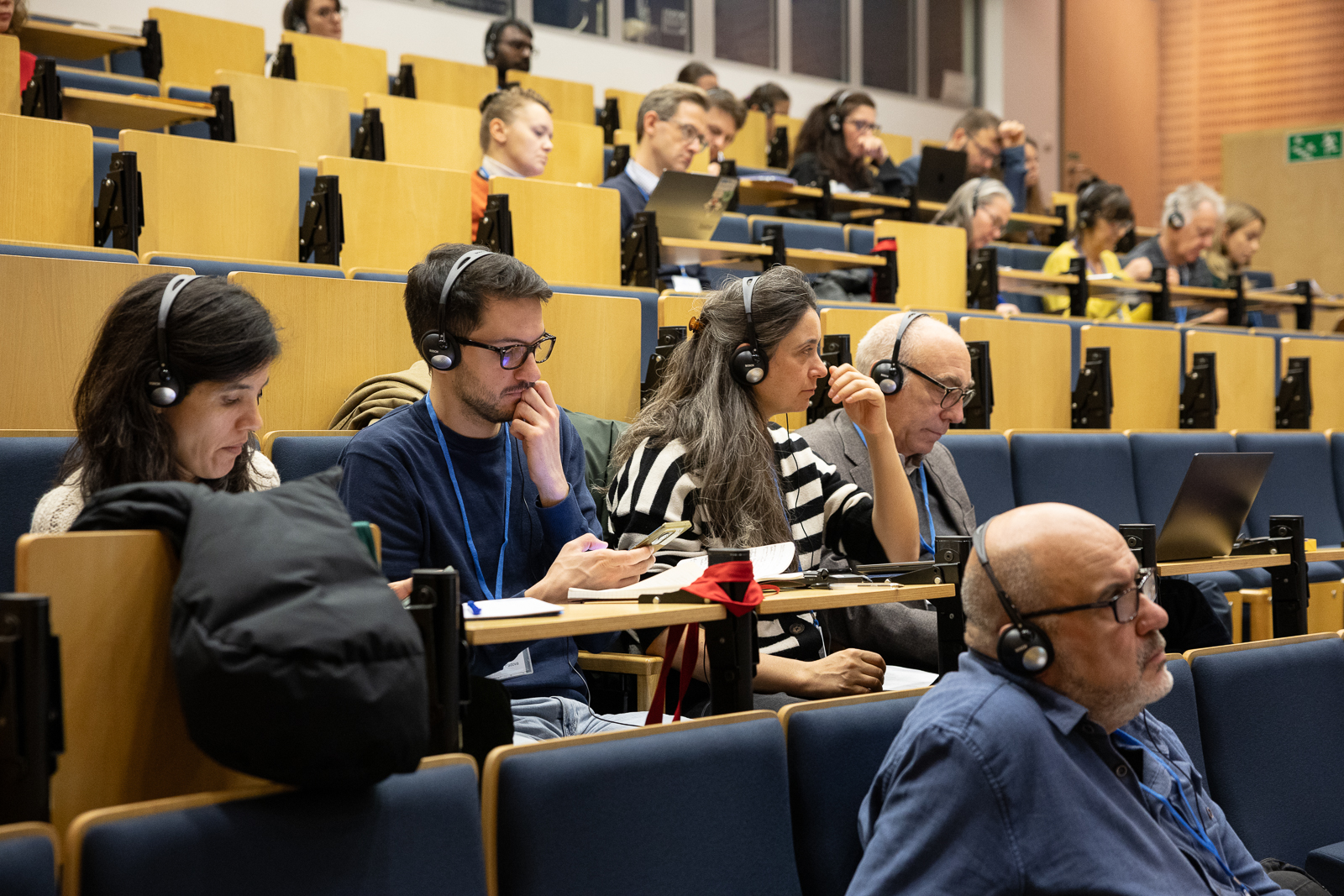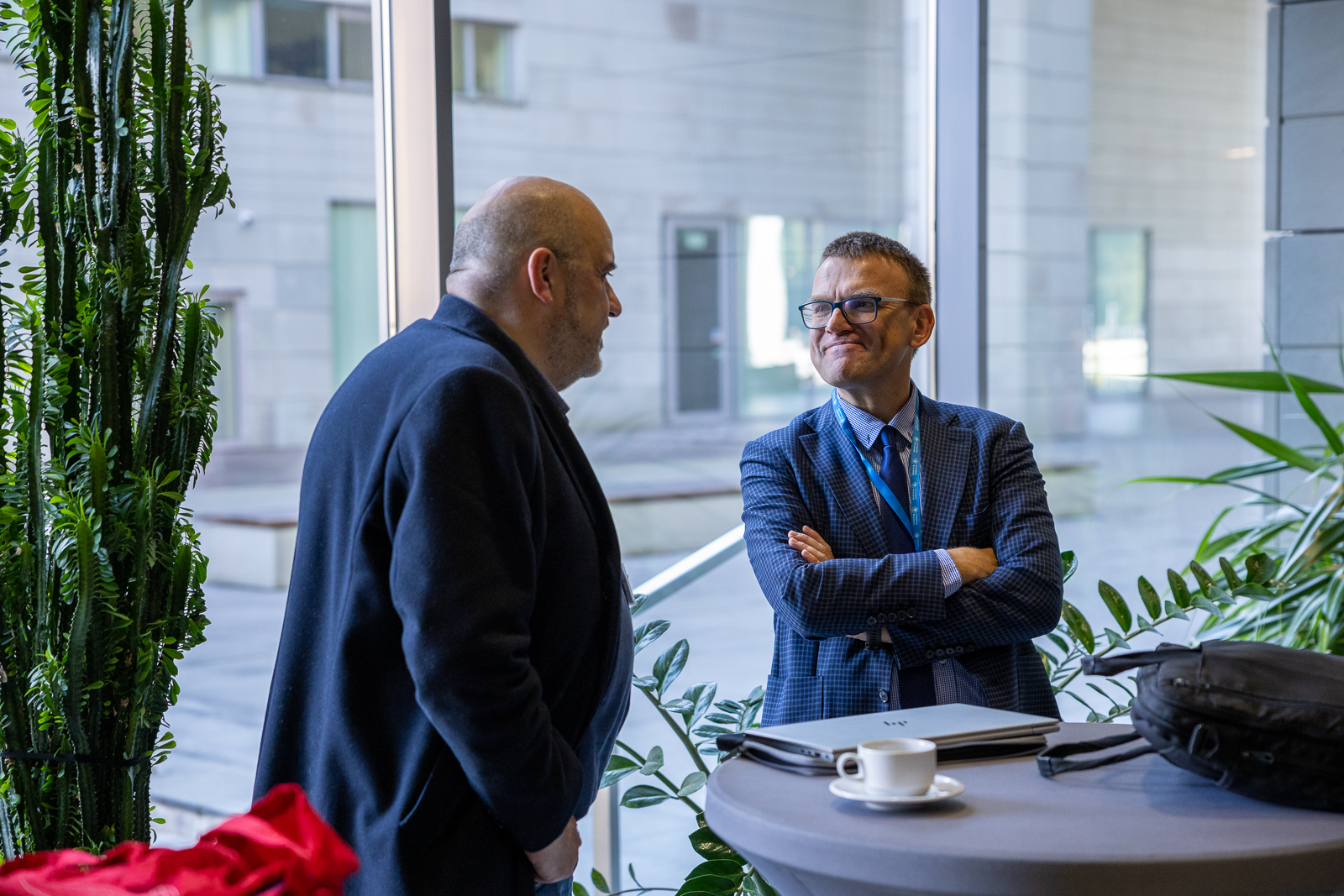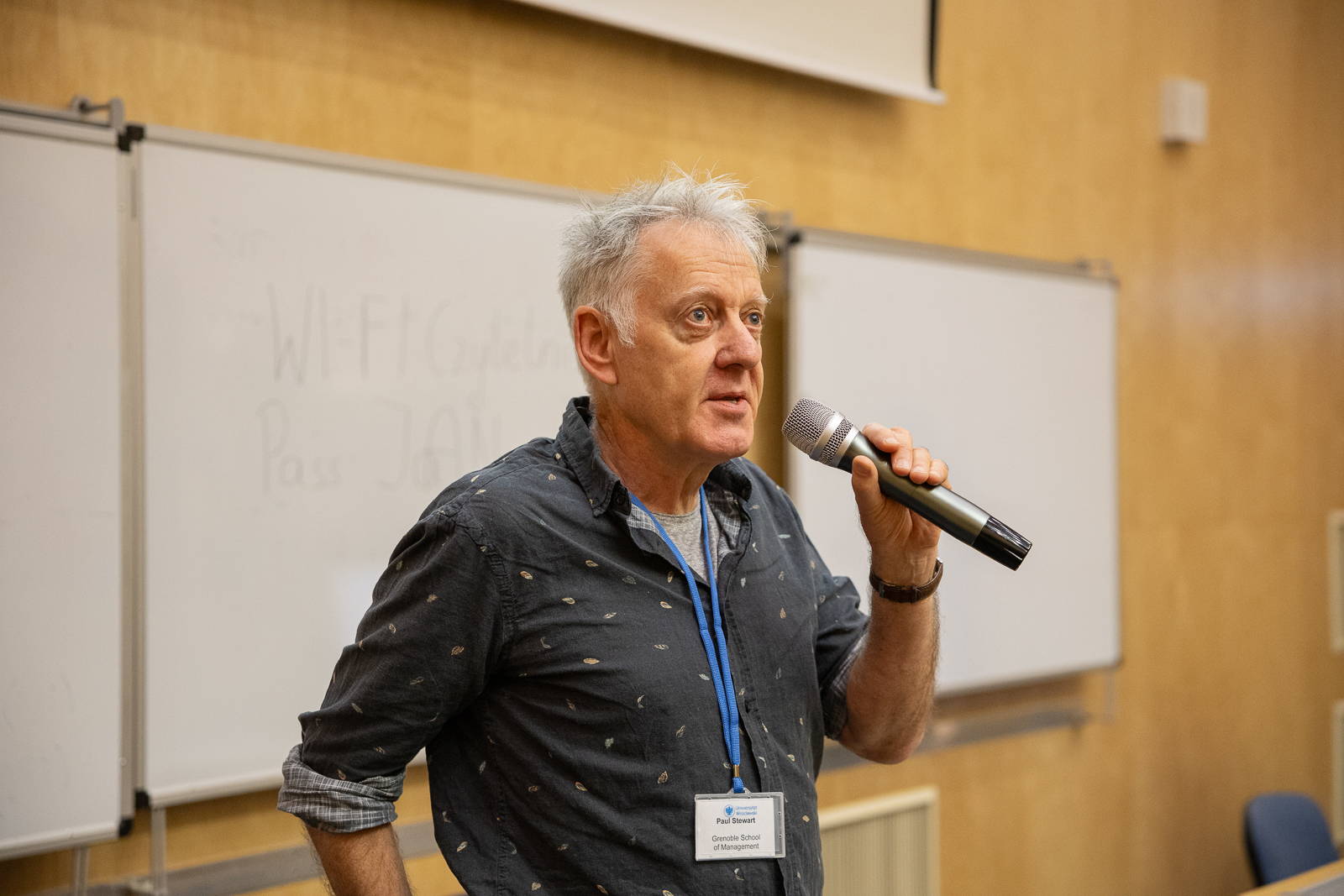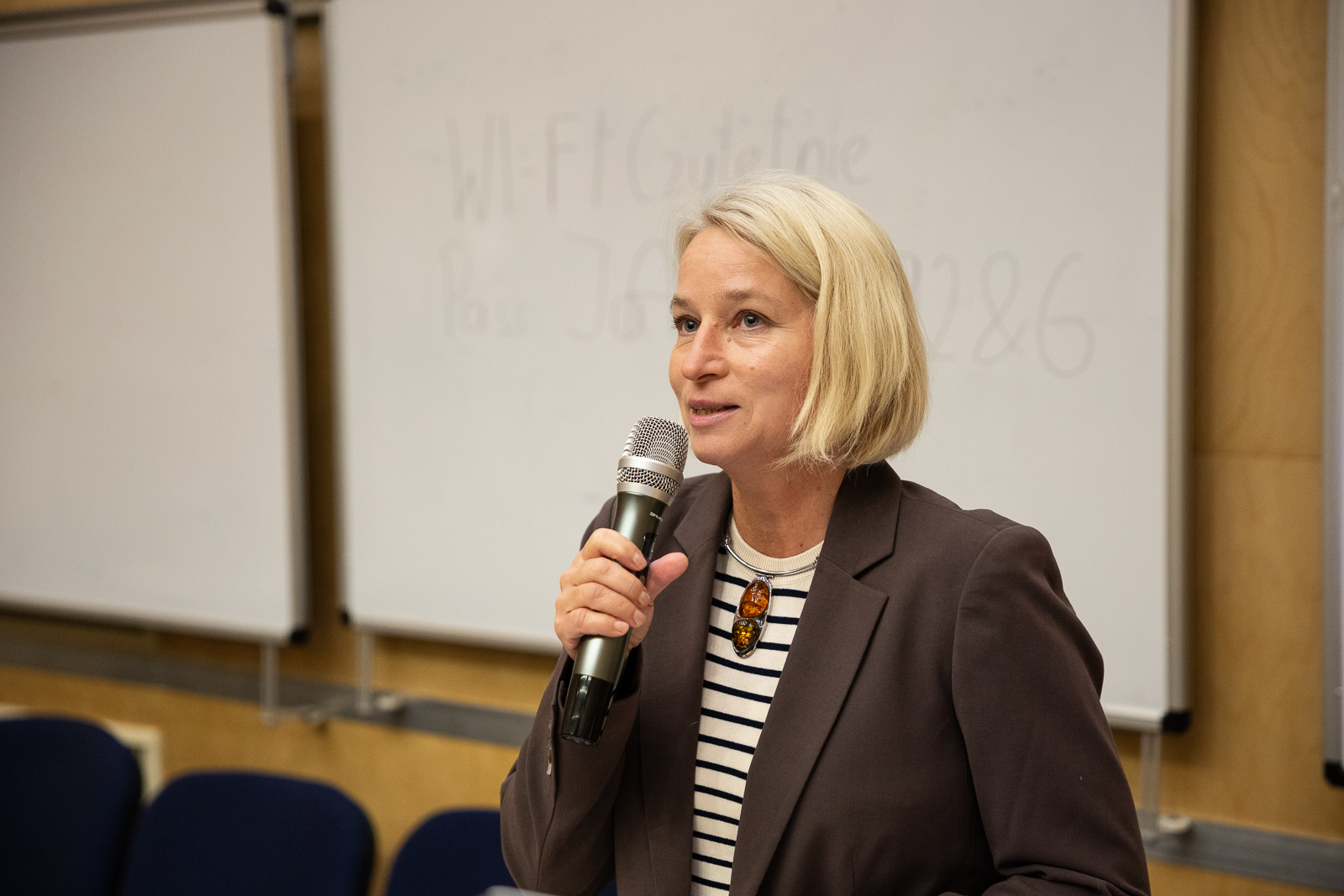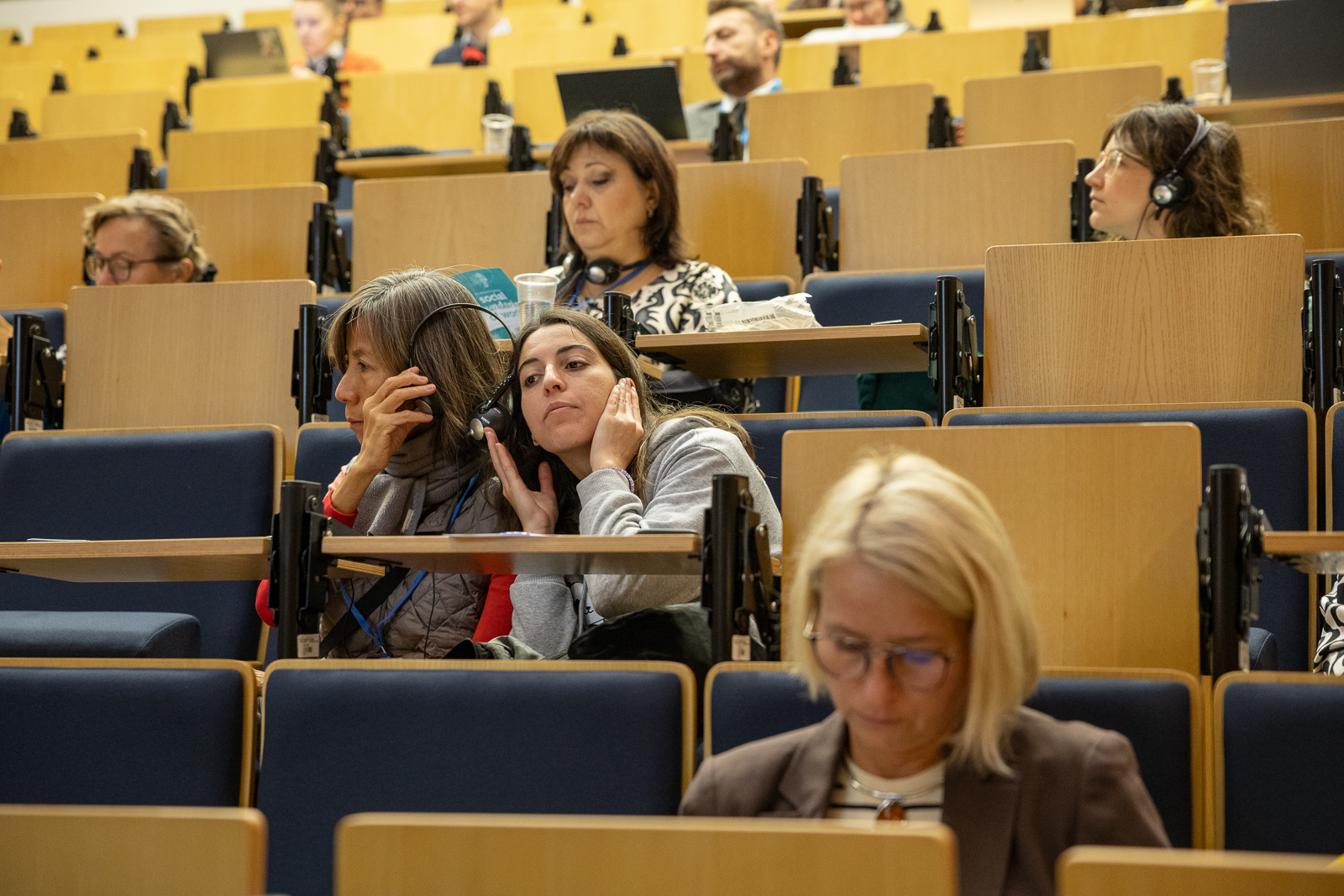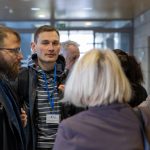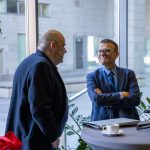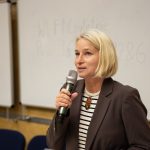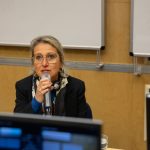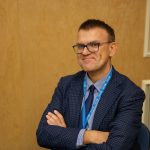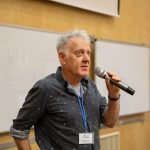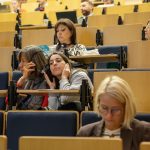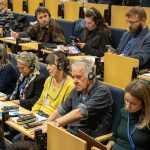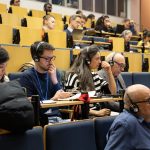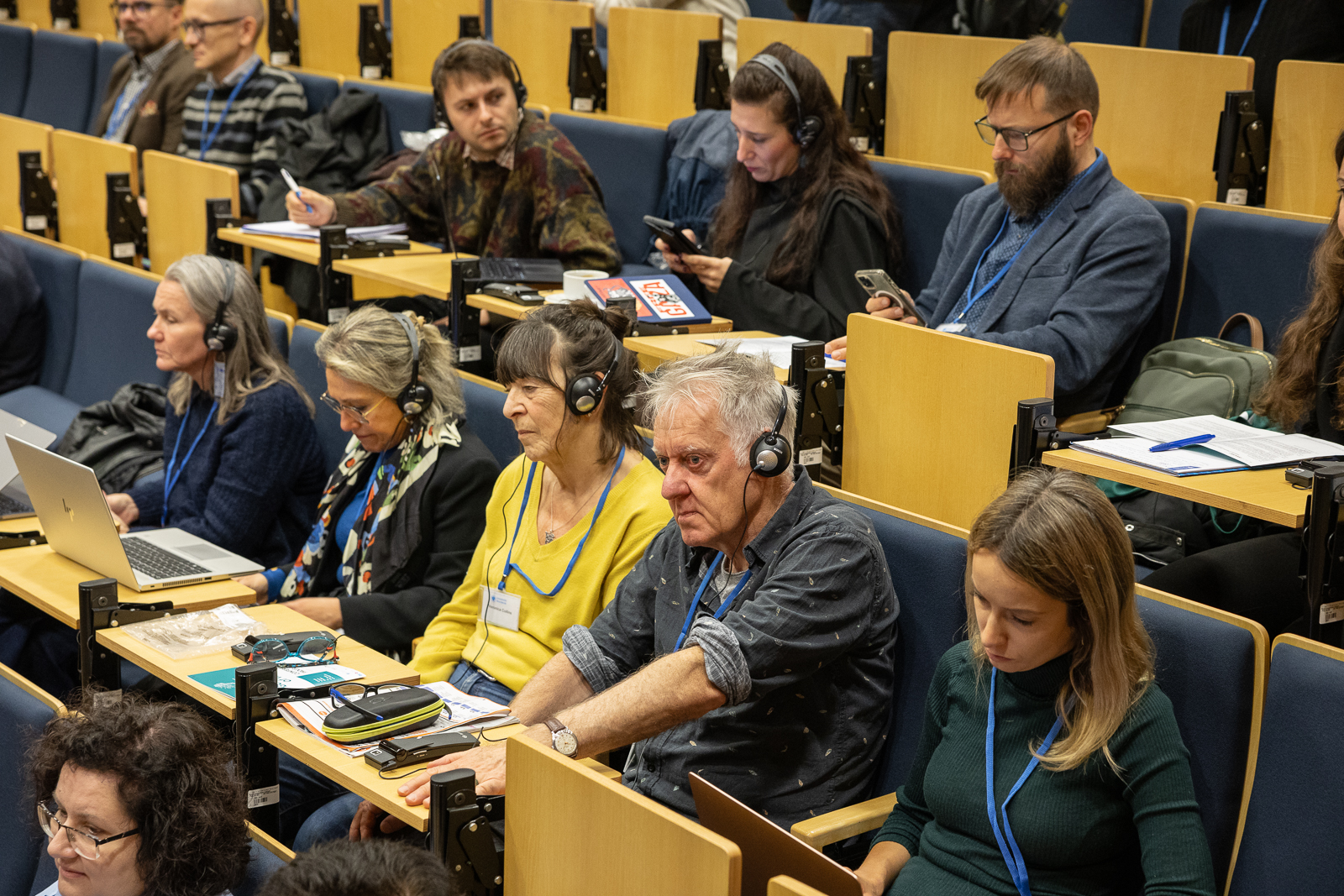
“Social boundaries of work” – workshop with social partners
The University of Wrocław is holding an international conference called “Social boundaries of work: Critical Labour Studies in the Times of a Polycrisis.”
The event is organized by the Department of the Sociology of Work and Economic Sociology at the Institute of Sociology of the University of Wrocław, the Sociology of Work Section of the Polish Sociological Association, the Critical Labour Studies Network, and the Research Committee 44 “Labour Movements” of the International Sociological Association.
The first day of the conference focused on open meetings with union representatives, representatives from employers’ organizations, public administration, and non-governmental organizations. Numerous guests from various countries joined the representatives as they participated in three workshops centered on research projects related to the current challenges and crises in the labor market.
The first workshop, “ResPecTMe Awareness Workshop,” moderated by Szymon Plicha from the University of Wrocław, summarized the findings of the ERC ResPecTMe project. It began with a lecture on the issues linked to the working conditions of platform workers, including the unpaid labor, which was delivered by Valeria Pulignano from KU Leuven and Karol Muszyński from the University of Wrocław. The panelists, Barbara Surdykowska from the trade union Solidarity, Stanisław Kierwiak from the Labor Confederation Trade Union at Pyszne.pl, and Aleksander Rosa from Pyszne.pl/Just Eat Takeaway, all agreed on the need for actions aimed at improving the working conditions of delivery drivers. They also mentioned that regulations regarding the roles of intermediaries in the food delivery industry should be clarified. Furthermore, the issues associated with the introduction of the Directive of the European Parliament and of the Council aimed at improving working conditions in platform work were also discussed.
Then, the participants debated over the results and recommendations from the research projects conducted by the Institute of Sociology of the University of Wrocław.
The second workshop, “the ENDURE Community Resilience Lab,” regarded the possibility for economic migrants in Poland to organize. The lecture was delivered by Mateusz Karolak and Könül Jafarova from the University of Wrocław, who presented their thoughts and conclusions from the project “ENDURE: Inequalities and Social Resilience and New Modalities of Governance in a Post-Pandemic World,” co-founded by the National Science Centre under the Trans-Atlantic Platform for Social Sciences and Humanities (T-AP) network.
Among the panelists were Ignacy Jóźwiak from Workers’ Initiative and Centre of Migration Research, Gabriel Montoya and Rocio Flores Torres from Związek Zawodowy Pracowników i Pracowniczek z Ameryki Łacińskiej w Polsce, and Ivan Strzeblicki from Inicjatywa Pracownicza Kurierów, who were joined online by Marcin Wiatrów from the Department of Labour Market in the Ministry of Family, Labour and Social Policy. The discussion was moderated by Olga Gitkiewicz from the University of Wrocław.
The discussion began with the observation that Poland, from a country of emigration, has become a country of immigration, and throughout the last 15 years, the number of foreigners applying for retirement insurance and disability income insurance has increased by over a million. During the panel, participants analyzed everyday experiences of foreigners living in Poland, management strategies, possibilities of organizing, and institutional and national strategies. Panelists agreed that legal issues, especially their enforcement, hinder migrants’ perspectives on the labor market. They also highlighted that the employees’ voice is crucial, because they know their problems firsthand, and know what changes in their workplace they would like to see.
The last workshop, a multi-industry seminar presenting findings of the “COV-WORK: Socio-economic awareness, work experiences and coping strategies of Poles in the context of the post-pandemic crisis” project, funded by the National Science Centre, was moderated by Julia Kubisa from the University of Wrocław. Jacek Burski from the University of Wrocław presented findings of the project conducted by the University of Wrocław and the SGH Warsaw School of Economics. The introductory presentation touched upon the changes in the quality of workplaces in industries crucial for the functioning of the economy and society in Poland, such as health care, education, logistics, and social service, which took place during the polycrisis of 2020-2024. The main focus was placed on the COVID-19 pandemic, war in Ukraine, and chronic problems typical of patchwork capitalism. Additionally, the speaker presented recommendations for social partners (the government, trade unions, and employers) concerning counteracting the negative consequences of the polycrisis in the workplace. He highlighted the need for a systemic pay increase, democratization of collective employment relationships, and support for the autonomy of grassroots workers.
The participants of the panel, Edyta Odyjas from Solidarity, Maria Magdalena Malinowska from Workers’ Initiative, and Jacek Pluta from the City Hall of Wrocław, discussed the proposed recommendations and shared their experiences of polycrisis in logistics, judiciary, and nursing home care. Social representatives highlighted employees’ health and mental problems, limited help from national institutions and employers, as well as the lack of appropriate financial conditions for the workplace to function properly during a crisis. They all agreed that the polycrisis uncovered the grassroots potential for collective action in the face of consecutive upheavals, which began in 2020, as the employees had to rely on their own resources, ingenuity, and solidarity in order to provide public services that were crucial for the society, country, and economy.
On the 17th and 18th of October, the conference will be held at the Faculty of Social Sciences at the University of Wrocław
More information and the program of the event can be found here: https://socialboundariesofwork.pts.org.pl/pl/
Date of publication: 17.10.2024
Added by: M.J.
Translated by Marta Kawik (student of English Studies at the University of Wrocław) as part of the translation practice.
